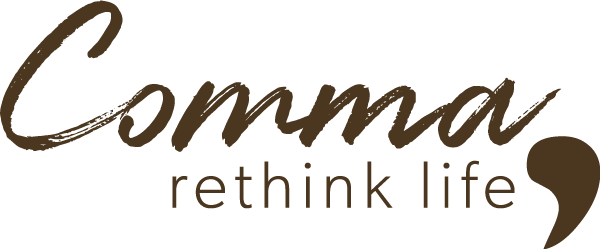In March, I shared about how to Connect (with our husbands) through Conversations. However, I would like to take this “conversation” a little deeper.
Words are not things – they are the representations and symbols
we use to view, think about, and process our perceptions of reality
and they are the means of sharing these perceptions with others.
Yet few leaders understand how vital conversation is to the health
and productivity of their company culture.– Judith E. Glaser, Conversational Intelligence
The significance of this quote is that the words we use in our everyday conversations are very VERY important and we ought to take heed of how we can use words to build people such as our husbands up, and not tear them down. Our objective to have any conversations ought to be for the betterment of the other party and not just for the individual motive.
And while our intentions to have good, healthy and fruitful conversations are there, what we are not aware of are 5 conversational blind spots:
Blind Spot #1: The assumption that others see what we see, feel what we feel, and think what we think.

Photo by cottonbro from Pexels
My husband and I come from very different family backgrounds, and so our individual upbringing was vastly different. This also means that the way we think, analyze, filter, understand and feel words would be different. Over the years, I know not to use the term, “you are always …” because I know how these three words will trigger him to a time when his parents would use those exact words to belittle him or to wrongly accuse him of something. With this knowledge, I try to reframe my words and sentences in order to create new conversation plains that will in turn create an atmosphere of trust, support and understanding so that we are able to have healthy conversations without fear of judgement, accusations, misunderstandings.
Blind Spot #2: The failure to realize that fear, trust, and distrust changes how we see and interpret reality, and therefore how we talk about it.

Photo by Gary Barnes from Pexels
This science behind this blind spot has to do with our body releasing certain hormones called “Cortisol” and “catecholamines” when our brain detects a state of fear/distrust. It immediately reverts to a state of protectiveness and shuts down the part of our brain that allows for coherent (logical) thought, which is performed by our prefrontal cortex. Taking the above scenario where my husband would now be on his defensive or attacking mode because of the words I used. In his interpretation, I was in some form attacking him, we would not be able to continue with a productive conversation because his defense mechanism would be up, and be in no mood to listen despite my best intentions to say things in a different manner. The best would be to allow for a cooling off period, when he is calmer, or both have time to reflect on how the delivery of the message could have been better. The focus is to neutralize the negative state or disposition.
Blind Spot #3: The inability to stand in each other’s shoes when we’re fearful or upset.
Again, the backstory of this has to do with our brains having unique neurons called mirror neurons that is activated to allow us to have empathy for others in our state of conversation with them. However, if we are in a state of insecurity, fear/upset, the ability to empathize and connect with people decreases significantly. The focus then is to be self-serving, self-protect or survival.
Blind Spot #4: The assumption that we remember what others say, when we actually remember what we think about what others say.
I have to use an illustration with my son for this because it happens most often with him. Whenever I recount a story about him to my husband, and my son is there listening to me, the tendency for me to interpret his reactions about a situation has been 70% of the time wrong. Meaning to say, I thought he felt a certain way when something happened, when in actual fact, he was quite neutral about it. When we listen, we are actually not just listening, but filtering the information with our own perspectives, beliefs and understanding. The danger of not listening effectively, is that there will be a high chance of misinterpretation because of our own filters and acceptance of our own realities.
Blind Spot #5: The assumption that meaning resides in the speaker, when in fact, it resides in the listener.

Photo by Andrea Piacquadio from Pexels
This further illustrates the above example with my son, because as a listener, if I am not careful in trying to listen to him effectively, my brain is already jumping to certain assumptions or conclusions. because of what he may have said or not said! Whomever has to deal with teens who say very little may understand my where I am coming from. However, again, the lesson here is not to jump to conclusions, but to try and use open-ended questions to draw out more information so that both will have a greater awareness of what is trying to be communicated, and not assume what is trying to be hidden ;-p
When we work at addressing these blind spots by either minimizing or eliminating them, we will be enjoying conversations that are more positively influenced by our new level of awareness, perspectives, understanding (logical) and empathy (heartfelt).
I would say that the quality of my conversations with my husband has improved significantly since he became a Leadership Coach, and I became a coach with the John C. Maxwell Team. Prior to this, it was not that we didn’t talk about “deep stuff,” it was just that we didn’t really know or appreciate how good a marriage we had until our own awareness level of better communication and engagement through such conversations were enhanced. The most important basis of all conversations in marriages is to focus on how to get to a better state of “us” rather than “me.”
Featured image by Ryoji Iwata on Unsplash

Veronica Soong is a self-proclaimed introvert with a desire to share thoughts and ideas on how to build strong and intimate marriages, and does so through her writing at Comma: Rethink Life and as a co-founder of Oasis by Comma.
She is also a certified John Maxwell Coach as well as a certified NLP (Neuro-linguistic Program) Practitioner. She pursued both, initially to be in alignment with her husband who is a Leadership Coach. However, in the process of this pursuit, it opened avenues for her to reach out to women to better understand why we are wired the way we are, and how we can unleash our potential no matter our past.
Today, intent with her husband to continually build their marriage better and stronger in their faith, they make conscious effort to spend time with one another, having open and vulnerable conversations that lift each other up, which builds a foundation for their three grown children’s character, security, well-being, and outlook of life to thrive.




